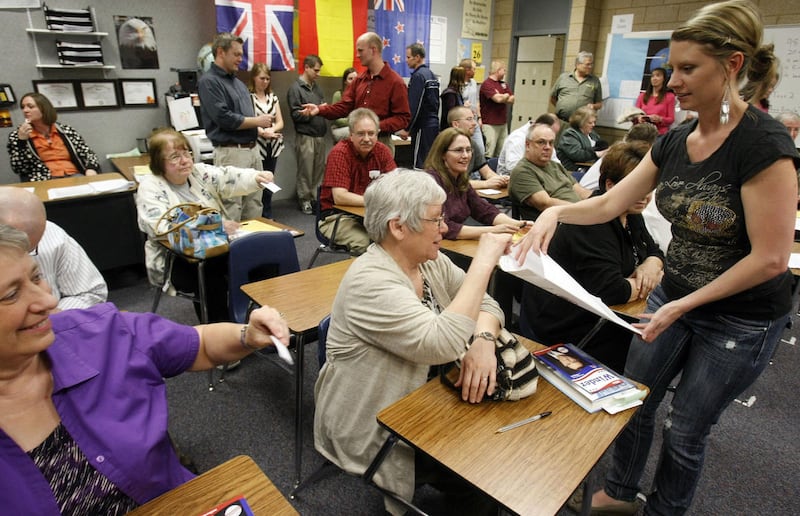We are in the midst of a crisis of civic engagement. Trust in government, voter turnout and even citizens’ basic knowledge about what government even does are abysmally low. In the face of these challenges, we find ourselves trying to find ways of empowering every willing voice. Among these tactics is the idea of replacing the Utah caucus and convention system with voter petitions.
This approach is missing a core role of the caucus and convention system that is much more important than merely vetting candidates for office: The caucus and convention system teaches citizens how to govern.
While petitions and voting are great opportunities to exercise individual freedom of choice, the caucus system builds capacity in the actual skills of civic engagement. Our system of government is complex and multilayered. But at every level, there are core structures and principles in operation. Those who know how to make a motion, discuss alternatives, form coalitions and identify solutions are more fully prepared to understand and engage the process at any level.
Unlike governing, voting is done in isolation. In contrast, the work of a caucus is done collectively, using all the tools of American government. Nominating, electing and serving as delegates gives us practice at nominating, electing and serving in other public offices. From Robert’s Rules to good old-fashioned persuasion, caucus night teaches us how to govern together.
The face-to-face interaction of the caucus system also builds our demand for civil discourse and the ability to empathize with others, two elements that are increasingly absent from the public square. Meeting on caucus night requires us to talk to our neighbors about our values and creates time and space for this important face-to-face communication. It involves no snarky online exchanges, where the dream of democracy devolves into semi-anonymous jousting. Rather, meeting in person requires that we face the consequences of our ideas and the emotional repercussions of our tenor. We learn not only how to express our voices in the political process, but also how to listen.
One major argument against the caucus and convention system is that it disenfranchises voters who cannot come to caucus meetings in person. They are missing out on the decisions made at caucus night, and that’s not OK. But even more problematic is the fact that they are missing out on the process of decision-making on caucus night.
If the value of the caucus and convention system was merely in who ends up on the party ballot in the primaries, then voter petitions would be a valid alternative. But the greater importance of caucus night lies in the ways we use the tools of democracy to reach a shared conclusion as fellow citizens. This cannot be achieved by merely gathering signatures.
We need to find a way to engage and empower those voices that have been left out of the caucus and convention system for too long. I believe that parties (at the precinct level, if necessary) should amend their rules and policies to allow greater eligible voter participation in caucus meetings, just as we take measures to ensure full participation in other elections. Because caucus meetings take place by precinct, each group can tailor absentee voting procedures to the needs of their local neighborhoods, including the creative use of videoconferencing and other methods as necessary.
At a time when civic engagement and social institutions are facing serious erosion, the caucus and convention system builds community capacity to make collective decisions and nurture the skills of democracy. Rather than eroding its efficacy, we should be diversifying and deepening caucus participation by seeking to actively bring every voice — and every listening ear — to the governing table.


